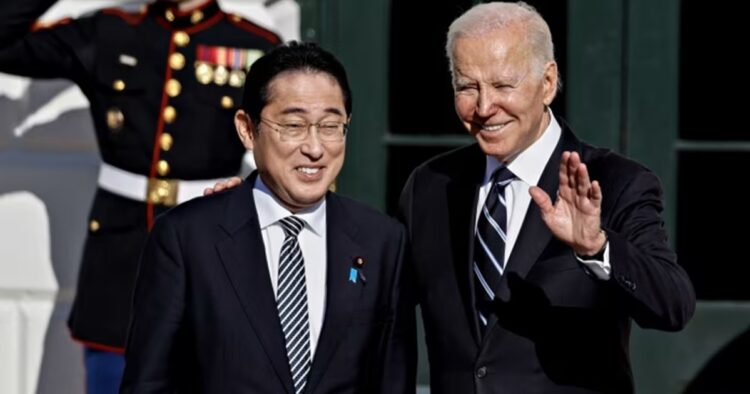In a bid to enhance their defense capabilities and tackle security challenges posed by China and North Korea, the United States military plans to reinforce the functions of its command headquarters in Japan. This move aims at fostering smoother cooperation with Japan’s self-defense forces, according to diplomatic sources cited by the Kyodo news agency.
The collaboration between Japan and the United States will extend to further steps aimed at bolstering their response capabilities. Tokyo had previously made a significant decision in 2022 to acquire the capability to strike enemy bases, even under Japan’s war-renouncing Constitution.
As part of these efforts, Japan is on track to establish a joint headquarters to command its ground, maritime, and air forces by the end of March 2025. The government under Prime Minister Fumio Kishida aims to deepen cooperation between the US military and this joint headquarters.
This initiative arises amidst escalating concerns regarding security threats from North Korea and China. Both nations, allies since World War II, perceive an increasing menace, evident through Pyongyang’s missile tests and Beijing’s military activities in the South China Sea and the Taiwan conflict.
China’s assertive stance on Taiwan, considering it as part of its territory, has led to heightened tensions. Beijing has ramped up military activities around Taiwan, including frequent incursions into its air defense identification zone and deploying military vessels near its maritime borders.
The forthcoming talks between Japanese Prime Minister Fumio Kishida and US President Joe Biden in Washington next month are expected to solidify the review of command and control operations. Kishida’s visit marks the first state guest visit to the US by a Japanese leader since Shinzo Abe in 2015.
Ahead of the two-plus-two talks involving foreign and defense ministers of both countries later this year, discussions regarding the details of military cooperation are likely to take place. The US and Japan have a longstanding defense treaty dating back to 1960, granting the US rights to establish bases in Japan in exchange for a commitment to defend the nation in case of an attack.
Both countries have collaborated closely on various defense initiatives, including ballistic missile technology. In 2020, the United States approved the sale of 105 F-35 fighters to Japan, further strengthening their military partnership.
However, logistical challenges such as the significant time zone difference and physical distance between Japan and the US Indo-Pacific Command headquarters in Hawaii hinder efficient interaction between Japanese forces and the US military.
In a recent statement, US Deputy Secretary of State Kurt Campbell expressed Washington’s support for Japan’s efforts to enhance its defense capabilities. He hinted at a forthcoming announcement following the Biden-Kishida summit, indicating a positive trajectory in bilateral military cooperation.

















Comments